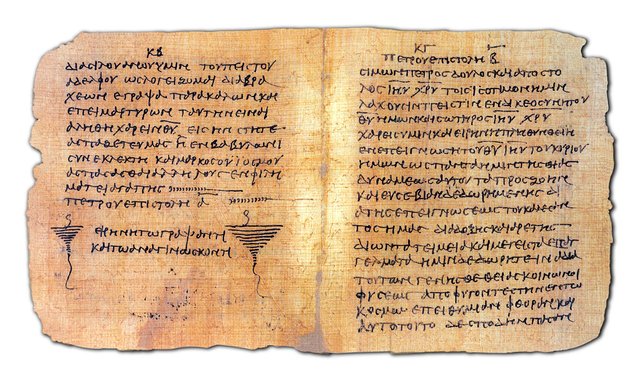The library on the Palatine
When Augustus had ended the civil wars, he beautified the capital by shining buildings, including the large library on the Palatine Hill. It was divided into a Greek and a Roman section and also had reading rooms - a forum for the poets, the proteges of Augustus' friend Maecenas. Vergil, Horace and Properz have now been invited to perform in the rooms of the Palatine Library from their works, the beginning of popular to this day "author readings". The library brought together authors, publishers and the public, and is still a dream destination today. For the shy Virgil it meant an overcoming to appear in public and to read from his aeneid. Other authors enjoyed the publicity, and the literary lectures eventually became a social event to be part of. The author invited to the reading was "in", he was known and quoted from his works.
Outlaw poets - censorship for books
Of course, a poet could suddenly be "out" again, as Ovid, who was for a long time Rome's most famous poet. In the year 8 AD, the spell of Augustus struck him: Without judgment, he was banished to the end of the world, to the shores of the Black Sea. From there he wrote poetry to his friends in Rome, in which only hint of the accusations that led to the hard punishment. One charge was Ovid's Ars amandi, the "art of love". It is worthy of damnation, a lascivious work in which adultery and free love are called for - a violation of the moral laws issued by Augustus! Ovid justifies himself in verse in an "open letter" and refers to the playful-poetic character of his work; In addition, the topic of love is finally everywhere to find, starting with Homer, who sings the adultery of the goddess Venus. Not to speak of Roman history, of Romulus, the progenitor of Rome, who was not conceived in the matrimonial bed! In addition, the "love art" had been published eight years ago, they are now in all libraries, and a punishment comes late. But Augustus remained inexorable, the poet never saw his beloved Rome again. A classic case of censorship directed against the poet as a freethinker who undermined custom and morality. In the same year as Ovid, Augustus banished his own granddaughter Julia for adultery. She had been brought up in strict accordance with the old tradition - for their casual life they had seduced such frivolous poets, who then, it is well known, wanted to speak out on the freedom of art!
Underground literature
The books of Ovid disappeared from the libraries, and his lamentations from the Black Sea went from hand to hand only in the circle of friends. Without me you go, my little book, to Rome, and I want to give it to you. Woe is me! Is your master but this journey failed. So Ovid sends his book role on the long journey. It is not decorated and swept: not rubbed with cedar wood, smoothed with pumice and put into a colorful cover - all the poor exile in his area at the end of the world has not at hand, the book comes in a sense in mourning robe, as befits its author befits. Bang wonders if there are still people who want to know how he is doing. But he still had friends who eagerly copied and circulated his poems. Even though the poet himself was a victim of censorship, his works were indestructible. Even during Ovid's lifetime, they returned to the libraries, and his "metamorphoses" began their triumphant advance.

